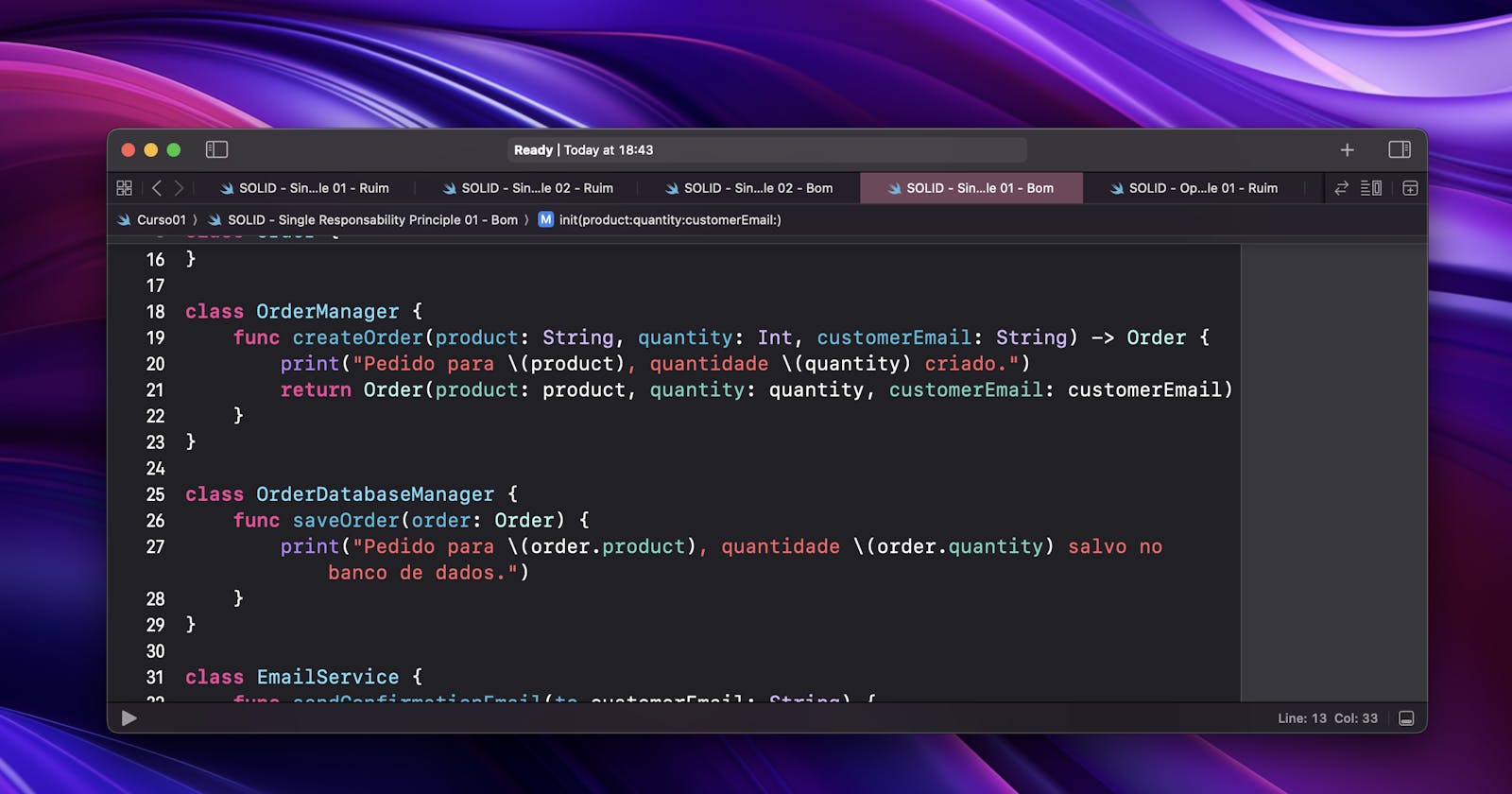The Single Responsibility Principle (SRP) of SOLID
Understand SRP and how can you make your code better.
Introduction
In this article, I will address the first principle of SOLID, known as the Single Responsibility Principle (SRP).
First, what is SOLID?
SOLID is an acronym representing five fundamental principles of object-oriented software design and architecture, identified by Robert C. Martin (Uncle Bob) around the 2000s. The acronym SOLID was introduced by Michael Feathers, after observing that the five principles could fit into this word.
Following these principles can result in a system that is more comprehensible, flexible, and modular, which is easy to scale, modify, and test.
Definition
The Single Responsibility Principle (SRP), the first of the five principles of SOLID, is a fundamental concept in object-oriented software development.
This principle states that a class should have only one reason to change, meaning it should be responsible for only one part of the software's functionality.
You should apply this principle not only to classes but also to functions, modules, etc.
An analogy for better understanding
Imagine a team in a restaurant. In this team, we have various functions: cooks, waiters, and the manager. Each of these team members has a unique responsibility. The cooks prepare the food, the waiters serve the food to the customers, and the manager takes care of the restaurant's administration. Imagine the chaos if a single person tried to perform all these tasks, it would generate a totally inefficient and confusing system.
Similarly, a class in software should specialize in a single functionality or responsibility. This makes maintenance easier, code comprehension better, and aids in reusability.
SRP in software development
Let's observe an example that violates the SRP. The class below deals with user details and at the same time manages the storage logic of those details.
class UserManager:
def __init__(self, user_name, email):
self.user_name = user_name
self.email = email
def change_user_email(self, new_email):
# Logic to change the user's email
def save_user(self):
# Logic to save the user in the database
In this code, UserManager is responsible for both managing user details and the storage logic (data persistence). This violates the SRP, as we have more than one reason to modify the class.
To correct the SRP violation, we can divide the class into two: one to manage user details and another to handle data persistence.
class User:
def __init__(self, user_name, email):
self.user_name = user_name
self.email = email
def change_email(self, new_email):
# Logic to change the user's email
class UserDataStorage:
def save_user(self, user):
# Logic to save the user in the database
Shall we see another example?
Below, we have a class that generates reports on products and also saves them in a file. This class does too much by dealing with both formatting and data persistence.
class ProductReport:
def __init__(self, products):
self.products = products
def generate_report(self):
# Logic to generate report
def save_report(self):
# Logic to save report
To adhere to the SRP, we can create a separate class for generating the report and another for saving the report to a file.
class ProductReportGenerator:
def __init__(self, products):
self.products = products
def generate_report(self):
# Logic to generate report
class ReportSaver:
def save_report(self, report):
# Logic to save report
Tips for applying the SRP to your project
Identify responsibilities: Analyze your classes to identify different responsibilities. Each responsibility is a potential axis of change.
Divide and conquer: If a class has more than one responsibility, consider dividing it into smaller classes, each with its own responsibility.
Code reuse: Classes with a single responsibility are easier to reuse because you can use them in different contexts without bringing unnecessary functionalities.
Testability: Classes focused on a single responsibility are easier to test because you do not have to deal with multiple functionalities during the testing of a specific functionality.
Conclusion
The Single Responsibility Principle is essential for sustainable and high-quality software development. Classes, functions, modules focused on a single responsibility ensure efficiency, maintainability, and clarity of code. By applying the SRP, you create a solid foundation for a robust software architecture, facilitating the evolution and maintenance of your project.
Thank you so much for reading this far. Find me on other social networks.
